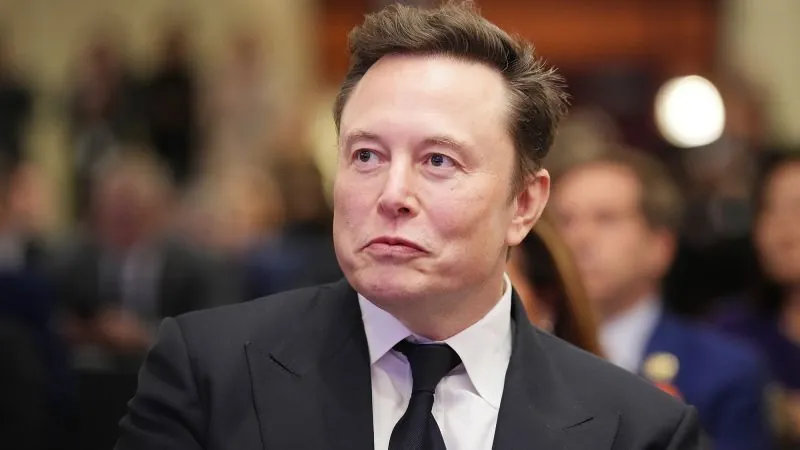
Elon Musk's Playful Notion of Acquiring MSNBC: A Serious Implication for Media Industry Dynamics
2024-11-25
Author: Ken Lee
Elon Musk's Playful Notion of Acquiring MSNBC: A Serious Implication for Media Industry Dynamics
Elon Musk, known for his bold statements and influential position as the world's richest man, has recently stirred the pot with comments about MSNBC, the cable news network he has publicly criticized as “the utter scum of the Earth” and a purveyor of “puerile propaganda.” Following his more recent post suggesting he might buy the channel, many wonder whether there is more than jest behind Musk's whimsical tweets.
As conversations swirl around potential ownership of MSNBC, it's revealed that there isn't just Musk interested in this liberal news outlet. Other billionaire figures with pro-liberal credentials have reportedly been in touch with MSNBC about the possibility of acquisition. This interest provides a somewhat comforting outlook for the network’s staff, who are understandably anxious about the prospect of a Trump-aligned billionaire at the helm.
Despite the chatter, it's important to note that Comcast, the parent company of MSNBC, has not indicated any intention to sell the network. Instead, CEO Brian Roberts has plans to restructure NBCUniversal's cable channels, moving MSNBC and various others under a new entity dubbed “SpinCo.” The objective is to enhance shareholder value by isolating profitable cable networks from the broader Comcast business. This strategic play is anticipated to take approximately a year to finalize.
The complexities involved in selling a part of this newly structured entity also cannot be overlooked. Analyst Benjamin Swinburne of Morgan Stanley points out that any major shifts or sales would likely be delayed due to the tax implications that a divestiture would entail, meaning that MSNBC isn’t headed to a new owner anytime soon.
Interestingly, while Musk’s playful memes attract attention—it is difficult to dismiss the somewhat sobering concept of “media capture.” This term refers to scenarios in which media outlets come under the influence of powerful individuals or groups, promoting biases in reporting that serve their interests. Historical examples, like the situation in Hungary under Prime Minister Viktor Orbán, illustrate how media control can lead to centralized propaganda that undermines democratic values.
Concerns about a similar dynamic emerging in the U.S. landscape have been raised, promoting an essential discussion on the role of billionaires in shaping media narratives. Gábor Scheiring, a former Hungarian parliament member, emphasized the need for liberal-minded billionaires to be proactive and engage in the media space to counter right-wing influences.
Mark Cuban, a prominent billionaire and investor, has dismissed the notion of owning MSNBC, stating that he believes it wouldn’t change the dynamics of old-school TV news. Cuban advocates for innovative platforms like Bluesky, encouraging new models of engagement and discourse rather than attempting to acquire traditional media outlets.
As the media landscape continues to evolve in the wake of social and political volatility, Musk’s humorous overtures may be a signal of more consequential developments on the horizon. Will these discussions lead to significant changes in media ownership, or is it merely fodder for comedic exchanges among billionaires? Only time will tell, but one thing is certain: the intersection of wealth, media, and politics is more explosive than ever. Stay tuned!


 Brasil (PT)
Brasil (PT)
 Canada (EN)
Canada (EN)
 Chile (ES)
Chile (ES)
 España (ES)
España (ES)
 France (FR)
France (FR)
 Hong Kong (EN)
Hong Kong (EN)
 Italia (IT)
Italia (IT)
 日本 (JA)
日本 (JA)
 Magyarország (HU)
Magyarország (HU)
 Norge (NO)
Norge (NO)
 Polska (PL)
Polska (PL)
 Schweiz (DE)
Schweiz (DE)
 Singapore (EN)
Singapore (EN)
 Sverige (SV)
Sverige (SV)
 Suomi (FI)
Suomi (FI)
 Türkiye (TR)
Türkiye (TR)